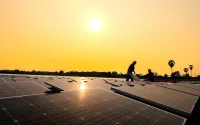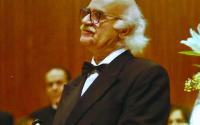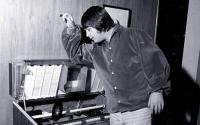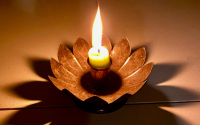14 June 2007The Independent
Bombers have blown up the two golden minarets of the Al-Askari mosque, a revered Shia Muslim shrine in Samarra, repeating an attack which led to a bloodbath last year and provoking panic in Baghdad as people rushed back to their homes fearing retaliatory killings of Sunni Muslims.
"After the dust settled, I couldn't see the minarets any more," said Imad Nagi, a shopkeeper. "I closed my shop and went home immediately." Another resident, Abdul-Khali Mohammed, predicted violence in the capital: "The Shia militias will now seize the opportunity to kill Sunni families in Baghdad," he said.
The sectarian war in the capital, which some Iraqi politicians call "the Battle for Baghdad" has been escalating over the past month despite the arrival of an extra 17,000 American troops, bringing their total number to 30,000 in the city. The "surge" in US military forces at first led to a drop in the number of people being killed but this rose again in May when 736 bodies were dumped in the streets.
The second attack on Samarra, yesterday morning, is likely to lead to an escalation of the Sunni-Shia war despite calls for restraint from Grand Ayatollah Ali al-Sistani, the most influential Shia cleric. Muqtada al-Sadr, leader of the Mehdi Army, also called on Iraqis to concentrate on ending US occupation. He said it was the "only enemy of Iraq" and "that's why everyone must demand its departure".
It was the destruction of the golden dome of the same shrine in Samara on 22 February 2006 that led to a bloodbath in which 1,300 people were killed in a few days. The attack yesterday was almost certainly the work of anti-Shia Sunni insurgents, such as al-Qa'ida in Iraq, who are eager to stoke the sectarian civil war in the centre of the country. This will enable them to pose as the defenders of the Sunni community.
The government declared a curfew that was meant to start at 3pm though the time was later shifted to 6pm. The Shia Mehdi Army militia took to the streets in several areas such as al-Khadamiyah, the site of another Shia shrine. On several occasions the Shia militiamen confronted US forces but there were few outbreaks of fighting. Much of west Baghdad, where most Sunni in the capital live, became wholly deserted.
"I am frightened because my house is just next to al-Amel district in west Baghdad which is mainly Sunni," said Huda, a journalist. "I am Shia but if there is retaliatory shelling by the Mehdi Army we may be caught in it."
In another area nearby called Baiyaa, where there have been sectarian clashes recently, two car loads of gunmen doused the Sunni mosque of Khudair al-Janabi with petrol and set alight to it. Smoke billowed from windows and three quarters of the building as destroyed. The destruction of mosques is often a sign for a whole community to be forced to leave.
The final destruction of the mosque at Samarra was always likely to provoke retaliation. The Shia venerate shrines in four cities in Iraq - Najaf, Kerbala, Khadmaiyah and Samarra - where their Imams, descendants of the Prophet, are buried in golden-domed shrines.
The success of the insurgents in blowing up the shrine at Samarra shows the inability of the government to defend targets that are likely to be attacked. Policemen defending it were later detained and asked to explain why they were unable to resist. Samarra city is predominantly Sunni and has long been an insurgent stronghold.
In Baghdad the 30-strong bloc of members of parliament loyal to al-Sadr withdrew from parliament in protest against what had happened in Samarra. They said they will stay away until the government takes 'realistic steps' to rebuild the shrine.
Retaliation against Sunni is likely to take the form, going by past experience, not of open attacks but death squad killings carried out by the Shia-dominated security forces.
Bombings and suicide bombings have been the main weapon of the Sunni in sectarian warfare while the Shia rely more on death squads and checkpoints where Sunni are identified, arrested and killed. Though it was the Sunni insurgents who started the struggle for Baghdad by their original attack on al-Askari shrine last year it is the Sunni community that has been the main loser. The Sunni population in the capital is being increasing pushed into its south west corner.






